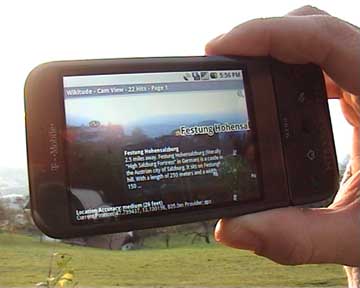The search giant sees a big future in Magic Leap.
Google and other firms, such as KKR, Andreessen Horowitz and Legendary Entertainment, have invested in the augmented reality (AR) company Magic Leap, and the $542 million the startup recently raised in a funding round led by Google, indicates that among some of the biggest tech companies, there is a large and growing interest in firms that provide 3D wearable tech.
Magic Leap hopes to one day replace smartphone and computer screens with VR interfaces.
The Florida-based startup was established in 2011 and is developing technology that functions like virtual reality (VR) glasses. When the technology is activated, computer generated images are displayed over what the wearer would typically see.
The company’s primary aim is to develop augmented reality technology in a way that will blend real-world images with three dimensional images, instead of submersing the wearer of a VR headset in an alternate reality. The company has created digital lightfield technology, which it claims mirrors biological processes, assisting the brain in making sense of the images it sees. According to an article in the New York Times, the company’s tech projects 3D images (“light sculptures”) onto the retina of the viewer.
 In addition, patent filings have revealed that part of Magic Leap’s technology could involve the use of cameras, ultrasonic sensors and infrared sensors, which could help the technology sense the environment around the user and recognize gestures.
In addition, patent filings have revealed that part of Magic Leap’s technology could involve the use of cameras, ultrasonic sensors and infrared sensors, which could help the technology sense the environment around the user and recognize gestures.
That said, beyond what has been gleaned from patent filings, what the company has indicated in the blog on its official site, and speculations from experts, it is not publicly known exactly what products Magic Leap is working on or what the company has up its sleeve.
Google isn’t the only big name investing in augmented reality devices.
Back in July, Facebook, the largest social network in the world, closed a $2 billion deal for Oculus VR, a company that creates head-mounted AR goggles. Likewise, Samsung is in the process of developing its own AR device, as is Sony.
As for Google, Magic Leap is only one of the company’s investments in augmented reality technology. Google launched a do-it-yourself cardboard kits for creating VR goggles out of smartphones in June and has also demonstrated Tango, an initiative that attempts to provide mobile devices with 3D sensing and mapping capabilities. Some speculate that while Magic Leap’s technology will come to market as a wearable that the tech could also be integrated with Google Glass.

 While AR tech can certainly improve upon a video gamer’s experience, use for this technology is also being explored in other areas where combining augmented reality with wearables could help solve practical problems hands-free. It is even showing promising results in the health sector.
While AR tech can certainly improve upon a video gamer’s experience, use for this technology is also being explored in other areas where combining augmented reality with wearables could help solve practical problems hands-free. It is even showing promising results in the health sector.